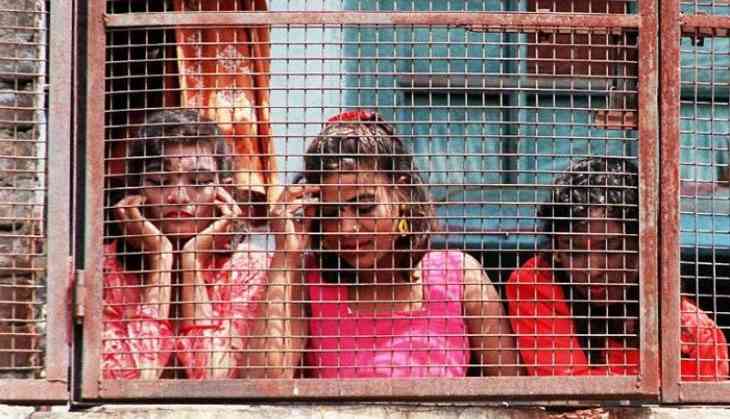
he 12 per cent GST on sanitary napkins imposed under the new tax regime has put sex workers of Sonagachi, Asia's largest red light area, in a spot, threatening to put the clock back when they were averse to using the pads.
It was after a sustained awareness campaign about health and hygiene that the sex workers had started using the sanitary napkins 10 years ago, but the steep increase in their prices has threatened to undo all the good work, according to an official of Durbar Mahila Samanwaya Committee.Durbar Mahila Samanwaya Committee (DMSC) is an umbrella organisation of the state's sex workers having more than 1,30,000 registered members in its fold.
Durbar Mahila Samanwaya Committee (DMSC) is an umbrella organisation of the state's sex workers having more than 1,30,000 registered members in its fold.
Although the zero percent tax on condoms has come as some relief to the sex workers, the hike in the prices of sanitary napkins following the imposition of Goods and Services Tax (GST) has again put them under grave health risk.
"In 2000, the rate of usage of sanitary napkins among sex workers was 20 percent and now more than 85 percent of them use sanitary napkins," Samarjit Jana, an official of DMSC told PTI.
Jana said that it happened because of a sustained awareness campaign, and secondly due to the sale of sanitary napkins at subsidised rates.
According to Soma, a 34-year-old sex worker and a mother of two said that she would prefer not to use sanitary napkins if the prices went up.
"It is a necessity for us. But if the prices go up, we will be left to go in for alternative means to maintain hygiene," she said without elaborating.
A DMSC official said that the subsidised napkins were sold by Usha Multipurpose Cooperative Society, commonly known as Usha Bank formed in 1995.
Every month more than 60-70 thousand packets of sanitary napkins were being sold from the counters of Usha bank and Durbar to sex workers only in Kolkata.
"We placed bulk orders with a company, which supplied the sanitary pads at a rate mush lower than the market. But now most of these companies have refused to provide them at subsidised rates on the ground that raw materials have been charged at 12-18 per cent GST," another official of Durbar said.
Meanwhile, the sex workers and officials of the DMSC have welcomed the zero percent tax on condoms and felt this would help in a big way to bring down the prevalence of AIDS.
"We have been able to bring down the AIDS prevalence to a large extent and we want to bring it to zero percent by 2025. The zero per cent GST on condoms will bring down its prices and will encourage the usage of it," Jana said.


